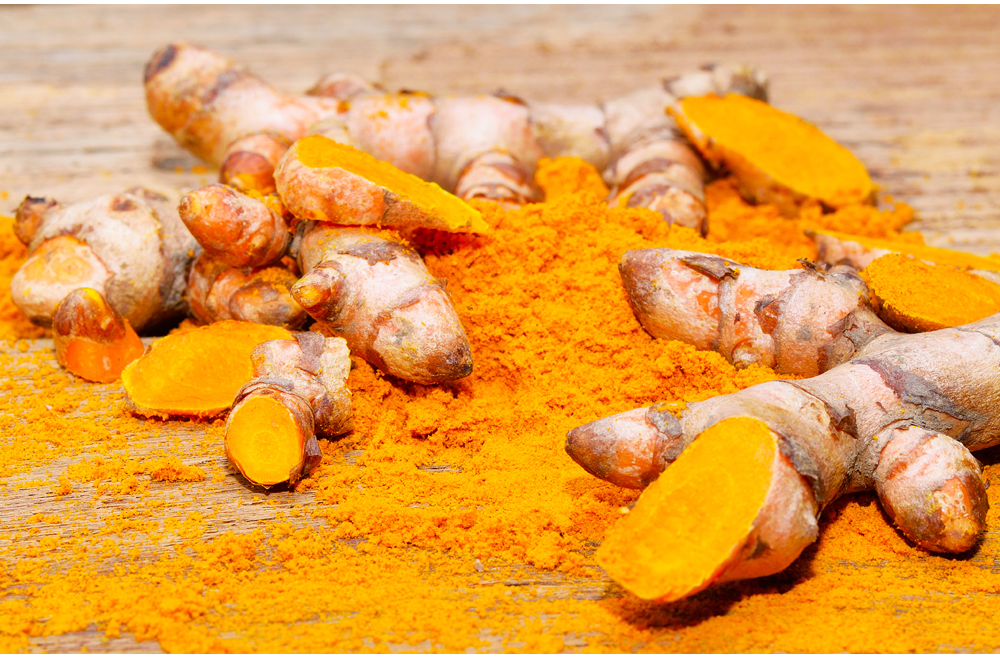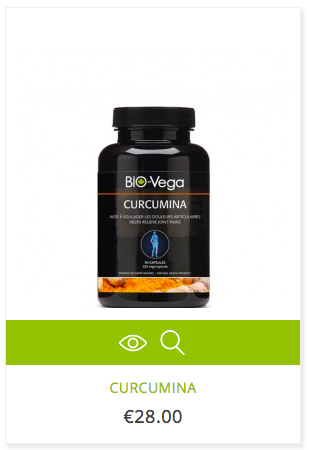Curcuma longa

Native to southern Asia, Turmeric, similarly to ginger, is used both as a spice in food, as well as revered for its many potent therapeutic properties. It is used in particular in herbal medicine as an anti-inflammatory to relieve joint pains and flatulent dyspepsia.
Turmeric (Curcuma longa) also called "Indian saffron" is a herbaceous plant belonging to the ginger family, and one of 700 species. Native to southern Asia, this plant, similarly to ginger, is used both as a spice in food, as well as revered for its many potent therapeutic properties.
Turmeric, in fact, has a rich and well-documented history of medicinal use in traditional Chinese medicine (TCM) as well as in Ayurveda, where it was commonly used in conditions such as liver disease, skin problems, respiratory and gastrointestinal ailments, sprained muscles, joint pain, and wound healing. Because of its antibacterial properties, followers of Chinese and Ayurvedic medicine also relied heavily on the topical use of turmeric for the treatment of ringworm and all kinds of infected wounds.
The effects of turmeric on your health
Arthritis, osteoarthritis and joint health
In modern times, one of turmeric's most important claims to fame is its incredibly potent natural anti-inflammatory properties. Turmeric in fact, contains more than two dozen indentified anti-inflammatory compounds, including six different COX-2-inhibitors.
The volatile oil fraction of turmeric has demonstrated significant anti-inflammatory activity in a variety of experimental models. Even more potent than its volatile oil however, is turmeric's primary pharmacological agent, curcumin, whose natural anti-inflammatory properties have been compared to the that of powerful pharmaceutical drugs such as hydrocortisone and phenylbutazone as well as to other common over-the-counter anti-inflammatory agents like Motrin. Today there is significant scientific data that has been able to demonstrate that curcuminoids can in fact profoundly lessen joint inflammation and destruction, by blocking inflammatory pathways and thereby prevent the classic symptoms of arthritis : swelling, pain & stiffness
Diabetes
Curcumin has been researched extensively for its natural blood sugar regulating-lowering properties. One particularly striking study, published in the American Diabetic Association's journal, Diabetes Care, found turmeric extract to be 100 % effective in preventing pre-diabetics from developing type 2 diabetes - a feat of prevention that no FDA approved drug for type 2 diabetes has yet come even close to accomplishing. In fact, turmeric reduces blood sugar so effectively and consistently, that it is commonly advised that diabetic patients already using medications to treat hyperglycemia should avoid turmeric supplements altogether. Turmeric also addresses symptoms such as increased thirst and frequent urination, among others.
Digestion
Turmeric is exceptionally valuable to help support digestion, to prevent heartburn and to help stimulate, support and protect the liver and gallbladder. In both Traditional Chinese Medicine and Ayurveda, it is regularly used as a digestive bitter and carminative. Further, due to the powerful anti-inflammatory action it exerts on the mucous membranes of the throat, stomach and intestines, it decreases congestion and inflammation throughout the whole length of the digestive tract, and encourages optimal digestion of protein, fats and carbohydrates. So thoroughly scientifically supported is turmeric's value in the treatment of digestive conditions in fact, that both the World Health Organization and the German E Commission list it as a first line therapeutic approach.
Flatulent dyspepsia
Solid scientific evidence has shown that turmeric protects the GI tract in myriad ways through its anti-inflammatory effect. Further, turmeric has shown to increase the secretion of gastrin, secretin, and bicarbonate, gastric wall mucus and pancreatic enzyme, while inhibiting intestinal spasms and ulcer formation caused by stress, alcohol and other lifestyle variables. The plant has also been demonstrated to effectively improve dyspeptic symptoms in patients with dyspepsia, as well as maintain remission in patients with ulcerative colitis. A particularly telling recent randomized controlled trial was conducted in 116 patients with dyspeptic complaints (such as abdominal pain, epigastric discomfort, flatulence or belching), which found that after 7 days of turmeric supplementation, 87 % of patients experienced symptom relief from dyspepsia compared to 53 % of the placebo group.
Certain types of cancer
Turmeric has also reportedly shown to be effective at preventing and/or treating a wide variety of cancers from colon, mammary, prostate, liver, esophageal and oral cancer in animal models. In fact, according to copious research, the effectiveness of turmeric against these cancers is said to compare favorably with that of pharmaceutical medications. As such, though far more study is necessary to be able to elucidate turmeric's potential in cancer therapy, and owing to its myriad health promoting properties, clearly its addition into one's daily routine, can only be considered the very best preventative medicine.
Related products
While turmeric is readily available in spice or tea form, it’s important to realize that if one is seeking to partake in its wonderful and far reaching therapeutic properties, a dietary intake is unlikely to offer very much in the way of clinical results. The root itself contains only about a 3 % curcumin concentration, and it is also notoriously poorly absorbed by the body. Further, when taken in raw form, we can only absorb about 1 % of the available curcumin. As such, turmeric supplement clearly offers tremendous potential for attaining and maintaining optimal health.


Comments
Leave your comment